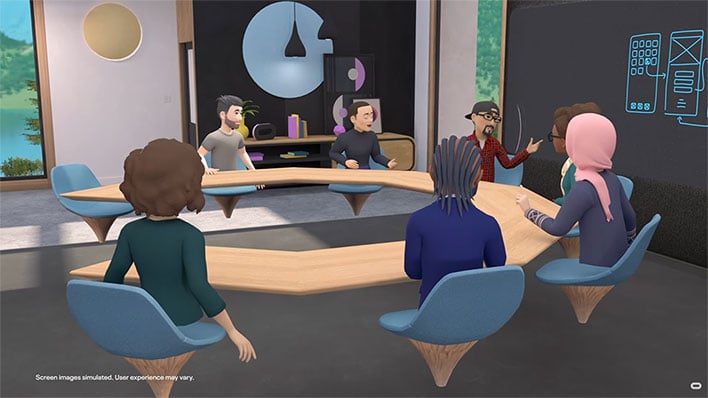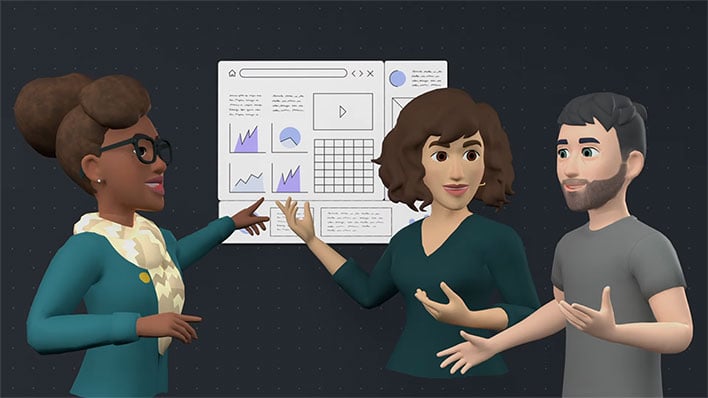Facebook's Oculus Horizon Workrooms Pits VR Meetings Against Zoom And Microsoft Teams
Facebook is making a virtual play in the remote collaborative workspace, with a new app for the Oculus Quest 2 called Horizon Workrooms. If you and your co-workers own a VR headset (and not just any VR headset, but specifically the Quest 2), this could offer an alternative to the usual suspects, including Zoom and Microsoft's Teams software.
"Workrooms is our flagship collaboration experience that lets people come together to work in the same virtual room, regardless of physical distance. It works across both virtual reality and the web and is designed to improve your team’s ability to collaborate, communicate, and connect remotely, through the power of VR," Facebook explains.
That could entail brainstorming on a virtual whiteboard, working collaboratively on a document, or simply hanging out and socializing with colleagues, friends, and family members.
To make the virtual magic happen, Facebook has wrangled various technologies into a single space, including mixed reality desk and keyboard tracking, hand tracking, remote desktop streaming, video conferencing, spatial audio, and of course the use of avatars. Users can join a meeting in VR as an avatar, or go old-school and join via PC or video call.
Those who join by video will show up on a video screen in the virtual room, to simulate an actual conference room experience. At present, Horizon Workrooms supports up to 16 people in VR, and up to 50 people total on a call (including video participants).
In comparison, Zoom's freebie tier supports up to 100 particpants, though group meetins are limited to 40 minutes (one-on-one meetings can last 30 minutes). Likewise, up to 100 people can join a free Microsoft Teams or Google Meet sesson, both for a session lasting up to 60 minutes.
The VR element is obviously the major separating factor here from traditional online collaboration. As such, Facebook says this the first experience it built that was designed from the outset to use your hands and not controllers as the primary input.
"This helps to create a more natural and expressive social experience and lets you switch more easily between physical tools like your keyboard and controllers when needed," Facebook says. The company adds, "To ensure the best experience, you’ll need to enable hand tracking to use Workrooms."
What about privacy and targeted advertising schemes? Facebook says plainly it will not use work conversations and materials to sway the kinds of ads users see on on the social networking site. And while audio is processed on Facebook's servers, the site says the clips are not stored "unless someone records and sends us a clip as part of a report."
"In this case, we'll use the information to take appropriate action and then delete the recordings. Finally, Passthrough processes images and videos of your physical environment from the device sensors locally. Facebook and third-party apps do not access, view, or use these images or videos to target ads," Facebook says.
The Horizon Workrooms app is available now in an open beta for free to Quest 2 owners. Therein lies the caveat—to get the party started, you need to own Facebook's latest VR headset, which also requires linking it to a Facebook account. Using Horizon Workrooms also requires an account that is separate from Oculus or Facebook (though your Oculus username is visible to other users in some cases).
For more info, check out Facebook's detailed Horizon Workrooms FAQ page.



